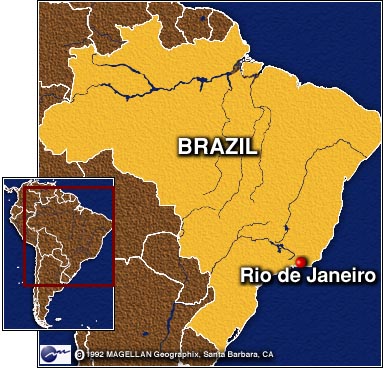Child abuse congress takes aim at the internet
 Rio de Janeiro - A rising incidence child pornography in the internet came under intense criticism at the third World Congress Against the Sexual Exploitation of Children (ECPAT).
Rio de Janeiro - A rising incidence child pornography in the internet came under intense criticism at the third World Congress Against the Sexual Exploitation of Children (ECPAT).
"Parents and children must better prepare themselves for the risks posed by the internet," said Ann Veneman, director of the UN children's fund UNICEF late Wednesday, the second day of the congress in Rio de Janeiro running through Friday.
Veneman added that "damaging cultural practices" also had to be eradicated in the battle against sexual exploitation of children.
Italian Minister for Equal Opportunity Mara Garfagna stressed that it was "very important to put a stop to the new kinds of crime which result from the new technologies."
Garfagna noted how, among the innovative efforts being made in Italy, the country's national centre to fight against child pornography in the internet.
Among others, the centre under the auspices of the Italian Interior Ministry collects black lists of internet users.
"I am convinced that the third congress here in Rio will result in many fruitful ideas for reflection and action," Garfagna said.
Sweden's Queen Silvia, in her remarks, called child pornography in the internet a great danger which had to be opposed. The queen, who heads the World Childhood Foundation, noted that sexual exploitation of children had many facettes, all of which were "equally shocking."
Amiohan Abueva, director of the ECPAT working group, and Irish human rights lawer Muireann OBrian demanded quicker action and more cross-border cooperation.
"It is often very easy to put the things down on paper, but we must act," Abueva said.
Some 3,000 experts, as well as government and business representatives from 114 countries around the world are participating in the congress in Rio.
Among other demands, ECPAT wants each corporation and institution to set up child protection guidelines in order to prevent employees from downloading child pornography on their workplace computers. (dpa)